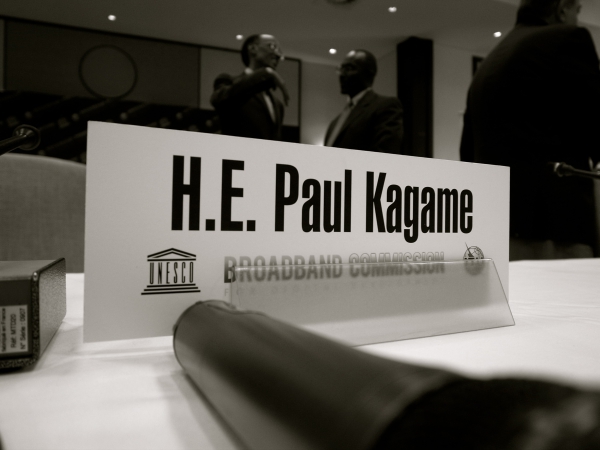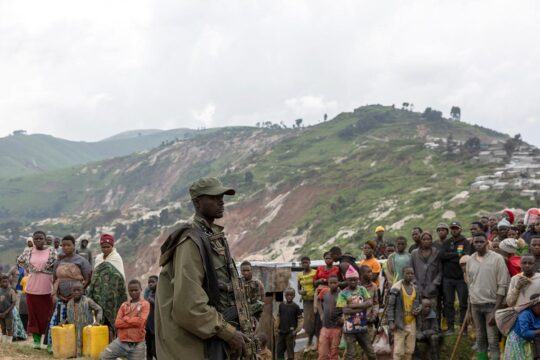In October 2010, the United Nations published its “mapping” report on crimes committed in the former Zaire, now Democratic Republic of Congo (DRC). This dense and detailed report by the UN High Commissioner for Human Rights looks at 617 of the most serious incidents in the DRC over a 10-year period. It gives details of massacres, sexual violence, attacks on children and other abuses committed by a host of armed groups, notably foreign soldiers, rebel groups and Congolese government forces. The report concludes that most of the crimes documented can be classified as crimes against humanity and war crimes. It also raises the question as to whether certain crimes committed by the Rwandan army and its Congolese allies against Rwandan Hutu refugees in 1996 and 1997 could be classified genocide. The report adds that it would be up to a competent tribunal to decide this. Several international organizations, including the International Federation for Human Rights (FIDH) and Human Rights Watch (HRW), hailed the report when it was published and called repeatedly for judicial follow-up. Five years later, nothing seems to have been done, as pointed out with regret by Vincent Courcelle-Labrousse, a French lawyer who has worked at the International Criminal Tribunal for Rwanda (ICTR).
Vincent Courcelle-Labrousse: As you may remember, this report brought great hope to victims, but also provoked great anger, especially from the Rwandan authorities. The report suggested setting up special chambers within the Congolese judicial system, while other people suggested a Special Court, but all that got quickly bogged down…
JusticeInfo.Net: Why do you think that happened?
V.C-L: The hundreds of thousands of Rwandans who died in the DRC in 1996-1997 are the expiatory victims of the 1994 genocide against the Tutsis. The Rwandan Patriotic Front/Rwandan Patriotic Army (RPF/RPA) used the fact that there were indeed many genocide suspects amongst the Rwandan refugees (former Rwandan army, militia) to justify the indiscriminate liquidation of a population on the basis of ethnicity. Paul Kagame, who is no doubt among the top five African dictators in terms of longevity, has been feeding us the same argument very efficiently for the past 20 years: that talking about systematic massacres in the DRC by his army (whether or not they were disguised as soldiers of Laurent-Désiré Kabila) is to minimize or brush over the genocide in Rwanda. This argument does not stand up, but it is used (and re-used) to systematically cast shame and suspicion on anyone who mentions the fact that there has been no justice for victims of the “great manhunt” conducted by the RPA in 1996-1997 in the DRC. The Kagame regime’s emotional blackmail still weighs heavily on any desire to bring justice for the massive crimes committed in the DRC in 1996-1997.
JusticeInfo.Net: Can we consider this another failure by the international community, which has always been afraid of drawing Kigali’s anger, ever since it failed to prevent or stop the 1994 genocide against Tutsis?
V.C-L: It’s more than a failure. It’s a tragic abdication of responsibility and willfully turning a blind eye.
JusticeInfo.Net: Or is it because there is currently no international tribunal that has a mandate to prosecute these crimes?
V.C-L: It’s true that there is currently no international criminal court that has the jurisdiction. Unless one is created, it is clear that the people responsible for those massacres will not be prosecuted in the short term. But who knows, maybe they will one day be tried in Rwanda. The day Kagame falls from power the issue is bound to come up. Moreover, since the regime claims its judicial system is in line with the highest international norms, there is nothing to stop Rwandan courts trying crimes committed by Rwandans against other Rwandans.
JusticeInfo.Net: As you said, some people have proposed a special tribunal on crimes committed in Congo, whose jurisdiction would also cover crimes currently falling under the jurisdiction of the ICC. Is that idea still valid?
V.C-L: Yes, it would be perfectly possible and justifiable to set up an international judicial mechanism to deal with these crimes. The Hissène Habré trial shows it is possible to set up internationalized jurisdictions without necessarily needing ruinous resources.
JusticeInfo.Net: Don’t the lack of judicial follow-up to the report and the ICTR Prosecutor’s refusal to prosecute alleged RPF crimes reinforce the view that the victims are unequal in the eyes of the international community and international justice?
V.C-L: In general, the tragedies inflicted on African populations, not just in the DRC, are not (or are no longer) emotional currency internationally. Many people have adopted a kind of fatalism with regard to Africa, as if mass death were practically inherent to the continent. That is unacceptable. In the case of suspected RPF/RPA crimes, impunity can of course only have negative effects in Rwanda in the long term. For those who participated in the anti-Tutsi genocide, it allows them to play down their own crimes. But for Rwandans who did not participate, the part of the population that had the events of 1994, 1997 and even afterwards inflicted on them, what are they supposed to think? They have seen only one-sided justice, when there has been any justice.
JusticeInfo.Net: How do you assess the legacy of the ICTR, which is closing its doors at the end of this year?
V.C-L: The ICTR has certainly fulfilled its mandate when it comes to trying and convicting perpetrators of genocide and crimes against humanity on the basis of solid evidence, through fair trials. We should not under-estimate this achievement. This Tribunal was needed. However, the Office of the Prosecutor has not fulfilled its whole mandate. It has deliberately spared RPF/RPA leaders against whom it could have brought charges and has in that sense served the interests of a dictatorial regime which jails its opponents, kidnaps them abroad and kills them. So the legacy of the ICTR is one of incomplete justice.






